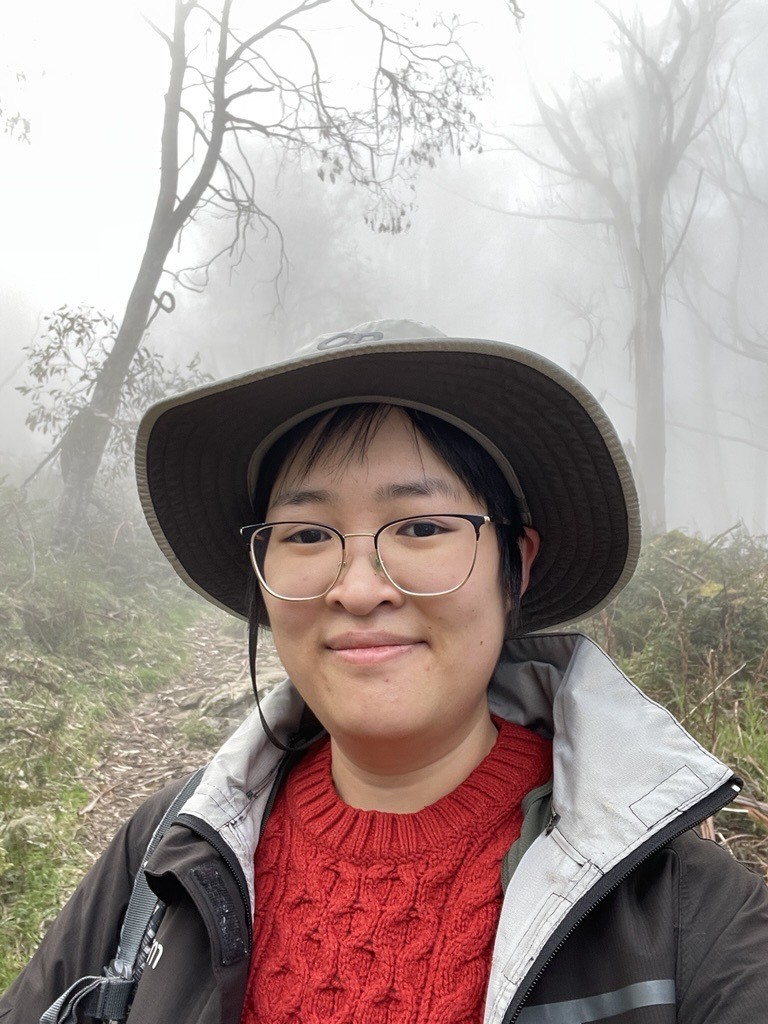‘I used to be the weird girl at school with caterpillars in my backpack,’ says Jenny Huang, a fire ecologist at DEECA.
‘I think I’ve always been an ecologist at heart.’
Jenny began working with DEECA through its Science Graduate Program. The two-year program is open to recent graduates of a range of science degrees, and offers them the chance to complete placements in rotations across the department.
When she was not long into the program, Jenny’s manager encouraged her to apply for another role in the department (one outside of the graduate program).
‘It was a fire ecology role. I would not have even looked at it if she had not suggested it to me, but it is something I wanted and that suited my circumstances so I took the leap.’
‘So I didn’t actually finish the graduate program.’
She says this experience mirrors others she’s had in her career, where those around her have shown confidence in her she didn’t always have in herself.
‘I’ve had some impostor syndrome. It sounds super trite, but it’s made me treasure the mentorships and friendships I’ve had along the way.
‘I feel like I’ve had such a lucky career, and so much of that I can put down to the people I’ve come across who have had confidence in me, and who have been able to point me in the right direction.’

Decisions, decisions
Jenny says when she started her Master of Science in applied ecology she quickly told her supervisor she didn’t want to end up in research.
‘During my [undergraduate] degree I had become really interested in decision science – how you can make smart decisions even when there is a lot of uncertainty.
‘So I told my adviser that’s where I wanted to be – in a decision-making or a decision-support role. She had a project for me that gave me my first connection to government.
‘That connection led me to the graduate program, which led me to this role.’
Jenny says her job can change enormously day to day, but she has three main streams of work.
‘My favourite thing is to work with people. Part of my role is to support regional environmental values officers to make fire ecology decisions, by talking to them or improving support tools or curating datasets.
‘I feel massively privileged to work with people who are connected to the land and making decisions that see pretty immediate implementation.
‘They are so passionate about their work.’
Her other streams include reporting for the Joint Fuel Management Program, and science and research development – both in-house and with other institutions.
‘We have been gradually improving our collection of species fire response models, and we recently received additional funding to really scale up this work and make it operational.
‘We model how populations of animal species change with time since fire.
‘We’re going to work with some of those institutions – our research partners – to build a pipeline for continuous model improvement. This would enable DEECA to more accurately plan bushfire management activities for the benefit of animal populations as well as evaluate the effectiveness of these activities.’
Jenny reflects that there is a saying – science isn’t done if it isn’t communicated. But she says right through her career she has seen the investment in science by government, and now she has a mission to see it communicated.
‘I see a lot of push for us to improve our science and how we communicate about it.
‘For the department, I see that internally and externally. I hope that we [scientists in the department] can make it our mission to communicate our work better.
‘There’s so many scientists here doing good work.’
Page last updated: 26/02/25